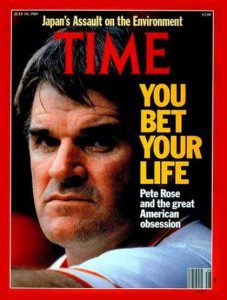Councilman Smith has been a longtime opponent of the rezoning plan to build a new strip mall in the heart of a residential district of the city. But then, one day, the developers show up at Councilman Smith’s office and give him a briefcase full of cash. In exchange for this, Smith changes his vote and agrees to support the new mall.
Councilman Jones has always favored deregulation and more development. He never met a strip mall he didn’t like and the proposed rezoning is exactly the sort of thing he’s inclined to support. Councilman Jones casts his vote in support of the new mall and, subsequently, the developers show up at Councilman Jones’ office and give him a briefcase full of cash as a campaign contribution.
 I would argue that both councilmen are corrupt — beholden to moneyed interests more than to the best interests of the people they were elected to represent. Smith’s corruption may be more clear-cut — a more explicit and obvious form of quid pro quo. But Jones, too, is under the influence of these developers and their cash donations. Calling the former a “bribe” and the latter a “campaign contribution” doesn’t change that.
I would argue that both councilmen are corrupt — beholden to moneyed interests more than to the best interests of the people they were elected to represent. Smith’s corruption may be more clear-cut — a more explicit and obvious form of quid pro quo. But Jones, too, is under the influence of these developers and their cash donations. Calling the former a “bribe” and the latter a “campaign contribution” doesn’t change that.
Smith’s payoff secured a change in his behavior. Jones’ payoff ensured that his behavior will not change. We might argue that Jones has more integrity because he never strays from his original ideology, but this is faint praise — like arguing that Pete Rose had more integrity than the Chicago Black Sox because he was betting on his team to win instead of deliberately throwing the game.
This is similar to the dynamic of paying tribute to the tribal gatekeepers of white evangelicalism that we discussed in the previous post. That dynamic is corrupt and corrupting — even for those who, like Councilman Jones or Pete Rose, don’t seem to have done anything they weren’t already intending to do in response to its system of rewards and punishments, requirements and prohibitions. That system introduces calculation. It causes those within it to become calculating.
And that, in turn, changes the nature even of those who seem to be adhering to their prior principles. What seems at first like a felicitous coincidence between their prior beliefs and the system of rewards and punishments leads, gradually, to a situation in which their prior beliefs are replaced by that system of rewards and punishments.
Councilman Jones sticks with his track record of favoring deregulation and laissez-faire, but the calculation introduced by that system slowly transforms him from some kind of small-government libertarian into something more like a crony capitalist. His ideological principles slowly change from being the values that guide his behavior to being the rationalization for behavior shaped more by reward-seeking and punishment-avoidance.
Jones’ “stance” doesn’t change, but that stance gradually ceases to be a product of his values, beliefs, reason and principles. His values, beliefs, reasoning and principles, instead, become a product of the requisite stance.
And, at that point, is it really meaningful to say that he retains any more “integrity” than his brazenly bribe-taking colleague Councilman Smith?
















